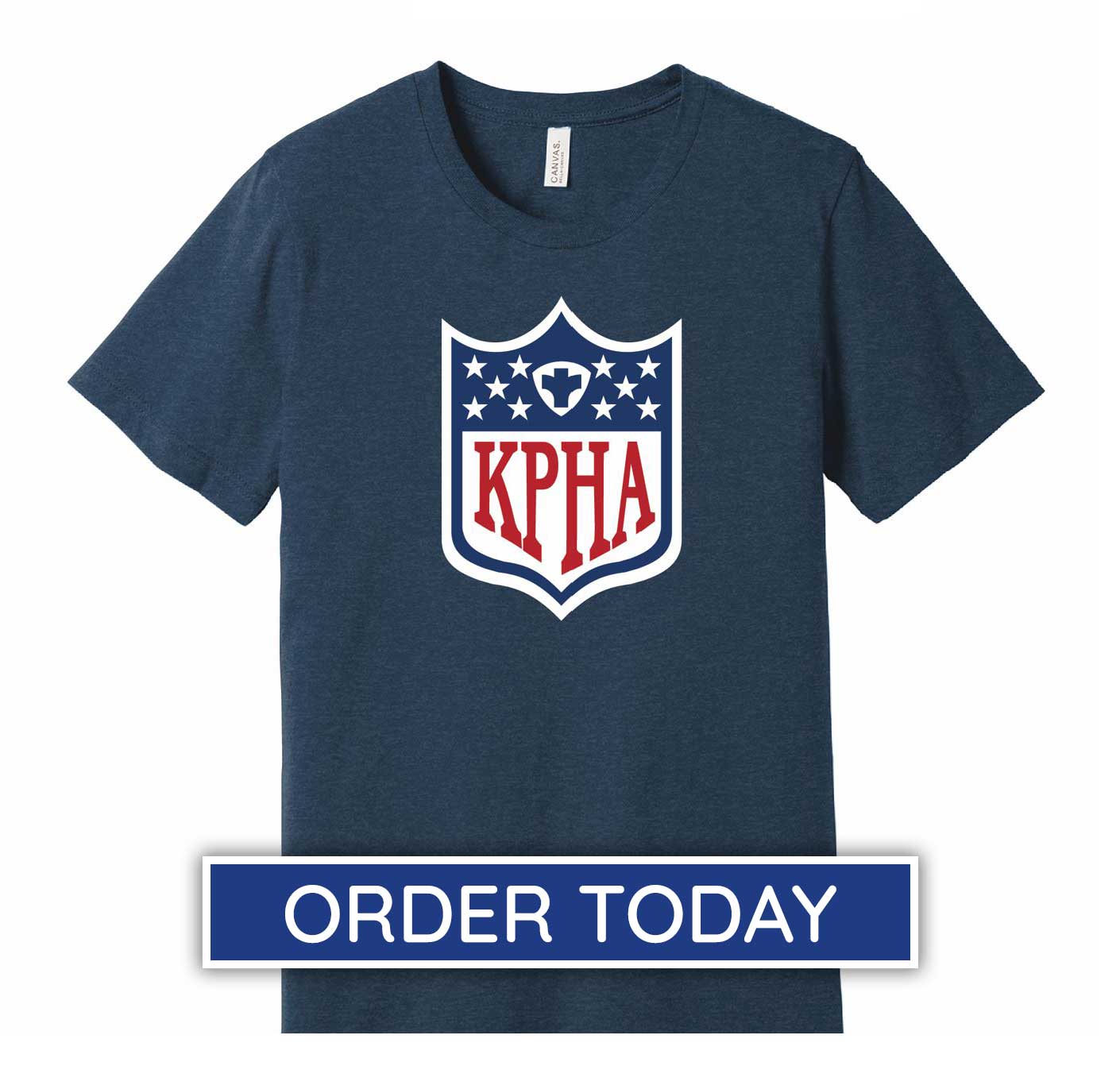76th Annual KPHA Conference
Sponsors


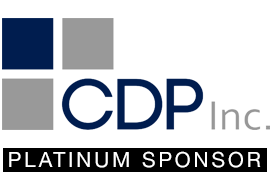






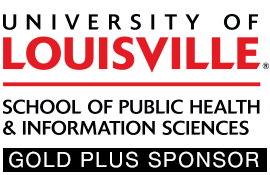



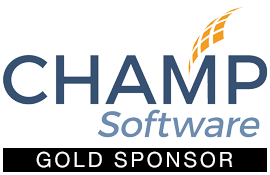

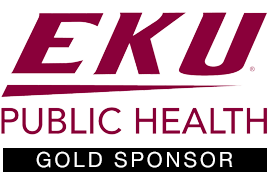


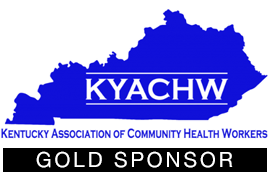
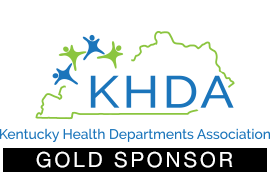
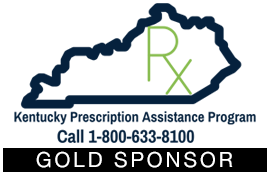

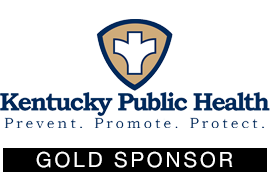
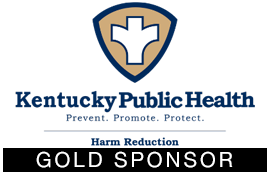

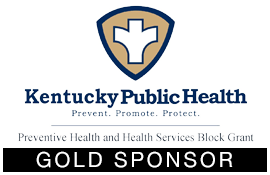
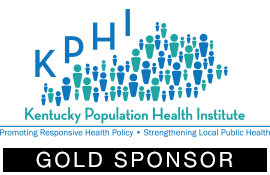
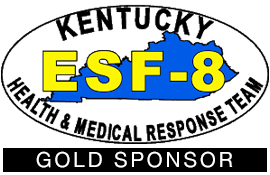
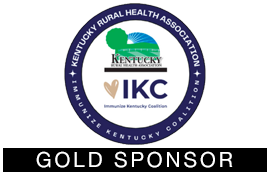
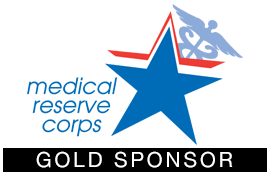
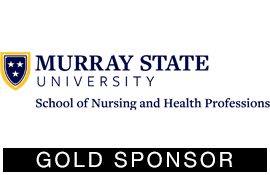


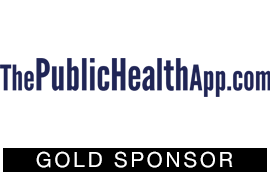

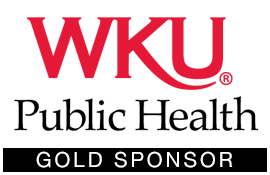
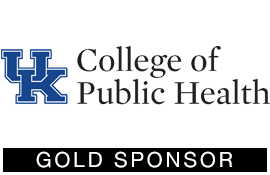

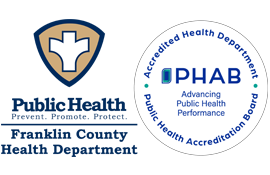
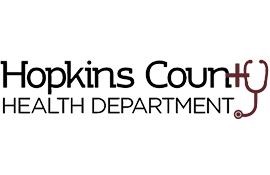
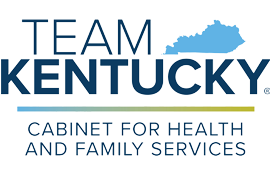
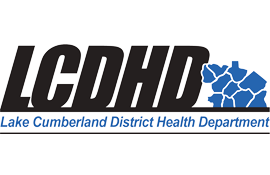
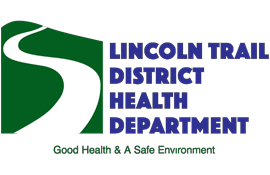
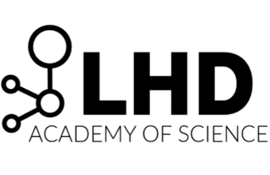
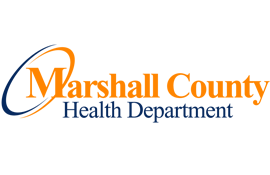

Dear KPHA Members,
We hope you are gearing up for an exciting KPHA Annual Conference! The member meeting will take place on Thursday, March 7th at 2:00 pm EST, immediately following the Awards Luncheon. As part of our commitment to transparency and member involvement, the KPHA Board of Directors has proposed a series of updates to our organization’s bylaws. These proposed changes will be discussed and voted on at the member meeting. The proposed bylaw edits are available here, please review them ahead of the meeting.
Thank you for your continued support and dedication to KPHA! We look forward to seeing you in Louisville, March 6-8!
Warm Regards,
Emily Childers
KPHA Executive Director
Submit an Abstract
Abstract Submission is now closed
Key Dates
- Abstract Submission Window: Today through December 1, 2023
- Notification of Acceptance: January 15, 2024
- Conference Dates: March 6-8, 2024 at the Marriott Louisville East
- Conference Theme: “Public Health for All”
Questions? Please feel free to contact Emily Childers, Director of Meetings.
Looking for things to do?
Yes, Bourbon is a spirit that comes in a glass, but it’s also the spirit that defines our culture, our arts and parks, and our creative energy. It’s this kind of spirit that helped create Louisville itself - a city that combines heritage with innovation, authenticity with originality, and quirkiness with friendliness in a way that’s completely unique to our region.
There's plenty to do in Louisville. Click here to learn more!
KPHA Swag!
Don't forget to order your KPHA swag? The deadline to order is February 16th. T-shirts must be picked up at the KPHA Conference in Louisville, KY; March 6-8, 2024. All t-shirts are unisex.
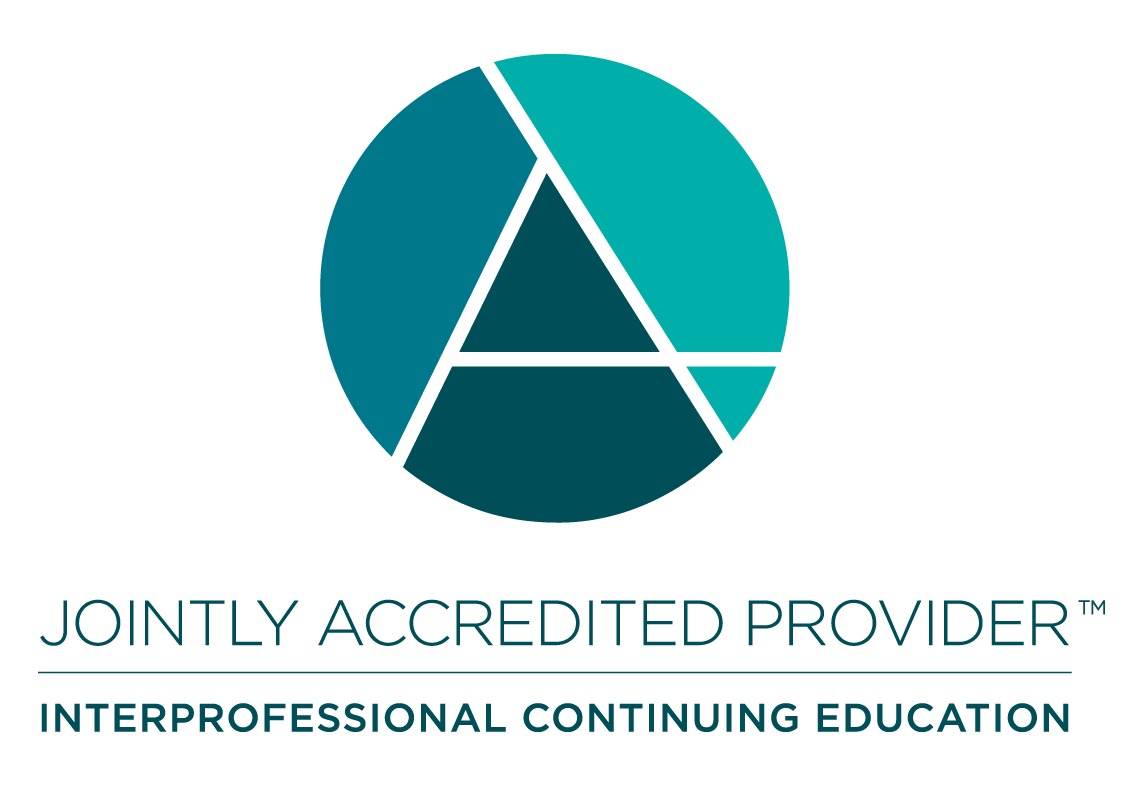 Joint Accreditation Statement
Joint Accreditation Statement
In support of improving patient care, this activity has been planned and implemented by Amedco LLC and Kentucky Public Health Association. Amedco LLC is jointly accredited by the Accreditation Council for Continuing Medical Education (ACCME), the Accreditation Council for Pharmacy Education(ACPE), and the American Nurses Credentialing Center (ANCC), to provide continuing education for the healthcare team.
Nurses
ANCC Credit Designation Statement
Amedco LLC designates this activity for a maximum of 11.00 ANCC contact hours.
Conference Agenda
|
WEDNESDAY, MARCH 6, 2024 |
|
|---|---|
|
11:00 AM - 06:00 PM |
Registration Open |
|
11:45 AM - 12:45 PM |
Meet, Greet, & Eat with Exhibitors Room: GS Commonwealth AB & Prefunction |
|
01:00 PM - 02:00 PM |
Keynote Presentation, Part 1: The Intersection of Race, Ethnicity, and Social Determinants Speaker: Pastor Palmer Room: GS Commonwealth A-D |
|
02:00 PM - 02:15 PM |
Break with Exhibitors Room: Prefunction |
|
02:15 PM - 03:15 PM |
Keynote Presentation, Part 2: Avoiding Cultural Collisions Provide public health partners, service providers, and state and local agencies with an overview of the importance of cultural identity and competency and how this supports and promotes engagement when serving families from a wide variety of backgrounds. Learning Objectives:
Speaker: Pastor Palmer Room: GS Commonwealth A-D |
|
03:15 PM - 03:30 PM |
Break with Exhibitors Room: Prefunction |
|
03:30 PM - 04:30 PM |
Come to our session to learn more about our model to reduce barriers to perinatal and reproductive healthcare by enabling peer recovery coaches to empower people they serve who can get pregnant or are pregnant in active use or early recovery. Learning Objectives:
Speaker: Hartley Feld, MSN, PhD; Jeremy Byard Room: Colonel Building on efforts to reduce health inequities in Louisville, financial stability and economic mobility represent an important area for intervention. A domain of financial stress that remains unexamined is the impact of engagement with traditional banking institutions, especially among groups that are struggling against economic marginalization. This study explored social processes that explain what role traditional banking institutions have in shaping the relationship between financial stress and wellbeing. Utilizing thematic development, socio-cultural themes such as self-stigma, and personal responsibility began to emerge. These themes were influenced negative participant experiences related to financial stability, and engagement or disengagement with traditional banking. Learning Objectives:
Speakers: Kaila Washington, MPH, MM; Dr. Gaberiel Jones, Jr., PhD, MPH Room: GS Commonwealth A-D Public Health and Cooperative Extension agencies are both trusted organizations in our communities. There are many opportunities for collaboration to better meet the needs of our community, as well as build capacity within our workforce. Learning Objectives:
Speakers: Janie Cambron, RS, MPH; Kimberly Henken, MS; Omolola Adedokun, PhD; Jeff Young, PhD Room: Bluegrass C Using Network Analysis to MAPP Community Partnership show participants how to identify, and leaders, how to build, strength in partnerships. Learning Objectives:
Speakers: Rachel Hogg-Graham, DrPH; Angela Carman, DrPH Room: Bluegrass DE Registered Nurses (RNs) are consistently considered one of the most trusted professions. RNs spend much time at the hospital bedside, medical office, public health department, schools, and home health caring for, treating and teaching patients and the community. In recent years, vaccine hesitancy has been noticed in the nursing population possibly due to inaccurate media information, the Covid pandemic and not enough focus on immunization education in schools of nursing/contact hours. This may contribute to the overall decrease in immunization rates if those most closely trusted and involved with the patients/community are fearful of or decline immunizations. It is important to work with RNs to understand their hesitancy and provide quality information and education to influence this group of trusted professionals. Learning Objectives:
Speakers: Denise Beach, MS, BSN, RN; Marcy Rein, MPH, BSN, RN Room: Bluegrass AB |
|
04:30 PM - 04:45 PM |
Break with Exhibitors Room: Prefunction |
|
04:45 PM - 05:45 PM |
Access and affordability are drivers of food insecurity. By identifying diverse, low-income urban neighborhoods in their community, the North Central District Health Department was able partner with area farmers, businesses and organizations to provide farmers’ markets in three underserved neighborhoods bringing access to fresh fruits and vegetables. Funding was secured to help make the markets more affordable for those in need, and a multilingual, boots-on-the-ground approach to advertising made sure the targeted populations were reached. A culmination of community and staff collaboration, this inclusive and educational outreach effort addressed social determinants of health for the underserved. Learning Objectives:
Speakers: Kasey Burkhead; Todd Martin Room: Bluegrass AB Heat Related Illness Education and Outreach The North Central District Health Department was awarded funds from the Environmental Public Health Tracking Network to develop a community outreach and education program to prevent heat related illness and mitigate the health impacts of extreme heat events. The Public Information Officer developed educational materials that were distributed at all four local health departments in North Central District and by our Community Education Team. Five community partners were engaged to serve as daytime cooling centers during extreme heat events. Desktop air cooling units were purchased with the funds and distributed to underserved neighborhoods in the community. Learning Objectives:
Speakers: Colleen Kaelin, MSPH, RS Room: Colonel Integrating Community Health Workers for Program Success While community health worker (CHW) programs have existed in Kentucky for decades, recent years have seen the introduction of a certification process for CHWs and an expansion of the profession throughout the state. CHWs play a unique role in the health of their clients and communities. However, research shows that their success is tied to their successful integration into the health promotion programs that employ them. This presentation will provide examples of successful CHW programs in Kentucky, and will offer recommendations for supporting and integrating CHWs to promote program success. Learning Objectives:
Speakers: Laura Eirich, MPH; Barbara Cruse, CCHW; Malea Hoepf Young, MPH, CHES; Joa McDaniel; Kasey Rhodes, MS; Tracey Sparks Room: Bluegrass DE In response to the ongoing global mpox virus outbreak since spring 2022, Kentucky initiated a coordinated effort involving public health authorities, healthcare professionals, and community organizations. The presentation examines Kentucky's current mpox case and vaccination data, focusing on a proactive initiative to increase vaccine uptake through gift card incentives for JYNNEOS recipients. As of October 2023, Kentucky had 110 mpox cases and administered 7,610 doses of the JYNNEOS vaccine. The presentation emphasizes collaboration for targeted interventions to address coverage gaps and enhance prevention efforts. Learning Objectives:
Speakers: Jennifer Duncan, MPH; James Grogan, BA; Bethany Hodge, MD, MPH; Amy Herrington, DNP, RN, CEN, CNE; Kathleen Winter, PhD, MPH Room: Bluegrass C |
|
THURSDAY, MARCH 7, 2024 |
|
|---|---|
|
07:00 AM - 12:00 PM |
Room: Cardinal |
|
07:00 AM - 08:00 AM |
Breakfast - Registration Open |
|
08:00 AM - 09:00 AM |
Barriers to Accessing Healthcare: CHA Findings from Marshall County, KY The (2022-2023) Community Health Assessment (CHA) conducted among community members in Marshall County, Kentucky identified access to healthcare and mental health as two of the top health issues in the county. Barriers to healthcare such as cost, lack of specialty providers, lack of information, and lack of convenient appointment times were mentioned in the community survey. This session will discuss inequities in healthcare access in rural Western Kentucky. Learning Objectives:
Speakers: Miranda Sue Terry, PhD; Billy Pitts, MHA, MHR; Miranda Sue Terry, PhD; Shay Glover, BS Room: Colonel Opioid use disorder (OUD) remains a consistent public health crisis and epidemic. Agencies and organizations tasked with monitoring and improving the health of the population need timely state and local data to make critical decisions on resource allocation and targeted responses. With funding from the National Institute on Drug Abuse (NIDA), researchers at the University of Kentucky are developing a novel data system, Rapid Actionable Data for Opioid Response in Kentucky (RADOR-KY). RADOR-KY is an integrated, population-based, near-real time statewide surveillance system that will ingest data from multiple state agencies and implement advanced informatic algorithms for fast data processing, data linkage, machine learning and predictive analytics to shorten the time between data capture and when analytic results are available to support opioid overdose prevention and control. RADOR-KY will include KY data sources such as Emergency Medical Services (EMS) records, prescription drug monitoring program (PDMP) records, syndromic surveillance, death certificate records, inpatient hospital charge records and emergency department visit records, and drug seizure data. The development of RADOR-KY is being guided by a user-end advisory group, consisting of state agencies and local stakeholders. Interviews are being conducted with leadership and technical personnel from state agencies to assess what they use to inform opioid use disorder efforts and any gaps or needs related to data. Findings from these interviews are being incorporated into the development of the RADOR-KY data system. RADOR-KY will have mobile and web-based applications to provide immediate dissemination and access to near-real time community and state level data, reports, and visual analytics to share with agencies and community-end users. Learning Objectives:
Speakers: Dr. Lindsey Hammerslag; Dr. Daniel Harris; Dr. Svetla Slavova; Dr. Jeffrey Talbert Room: Bluegrass C The Kentucky Office of Rural Health, Kentucky Board of Emergency Medical Services, and Center of Excellence in Rural Health developed and distributed a paramedic certification interest survey. The survey gauged interest in paramedic training and assessed barriers. An employer survey was also conducted to identify paramedics on staff and their starting pay and benefits. Questions were also asked about flexibility in scheduling, tuition assistance for staff interested in the paramedic certificate, and whether they paid for recertification hours. Results from the surveys and the steps being taken to address the paramedic workforce shortage in the Commonwealth will be shared. Learning Objectives:
Speakers: Frances Feltner, DNP; Melissa Slone, DSW; Scott Helle, BBA; Sydney Howard, DrPH Room: Bluegrass DE Thirty Years Later ... A New Framework for Public Health? In 1994, a federal working group began developing what became the 10 Essential Public Health Services (EPHS) for health departments and community partners to use as a framework for public health. Thirty years later, how’s it going? Is it time to re-think the foundations of public health? This session will describe the impact of the EPHS on population health and offer concepts for a new framework for public health. The session will forecast the potential health impacts of a new framework over the next thirty years and beyond. This session is “out of the box” thinking on a grand scale. Learning Objectives:
Speaker: Laura Foley, CAP Room: Bluegrass AB Using Systems Science to Enhance Behavioral Health Crisis Response Implementation in Kentucky Behavioral health (BH) crises continue to increase in Kentucky. Alternative response models (ARMs), e.g. the Commonwealth Model, expand responder call deflection from law enforcement and emergency departments to BH professionals. These response models involve complex and cooperative multi-organizational efforts, and effectively implementing ARMs statewide necessitates a complexity science approach. Participatory systems science methods offer particular utility for managing the complexity of implementing ARMs. This presentation will discuss the unique benefits of systems science application to ARMs implementation, including increased ability to account for barriers and facilitators, opportunities for equitable community engagement, and stakeholder motivation to enact systems-level change. Learning Objectives:
Speakers: Hallie Decker, MSSW, PhD(c); Emily Edwards, MeD; Melissa Eggen, MPH, PhD(c); Sara Choate, PhD, MSeD; David Johnson, PhD, MPH, CPH; Brian Schaefer, PhD, MS Room: GS Commonwealth A-D |
|
09:00 AM - 09:30 AM |
Break with Exhibitors Room: Prefunction |
|
09:30 AM - 10:30 AM |
Appalachian Agencies Partnering to Address Elder Hunger Many residents of rural Harlan, Kentucky struggle with food insecurities. Kentucky Homeplace, a long-standing Community Health Worker program, partnered with Appalachian Regional Healthcare and a local fresh food market to create a voucher process to address food inequities. Through this process, the Community Health Worker was able to identify and address many additional needs. Learning Objectives:
Speakers: William Mace Baker, BA RN - Director, Kentucky Homeplace; Darla Shepherd, CCHW, Harlan County Kentucky Homeplace Room: GS Commonwealth A-D Learn about the effectiveness of campus-community partnerships in promoting HIV/STD awareness among college students at Western Kentucky University while exploring barriers to accessing and utilizing these resources. By examining the complexities of offering sexual health education, this study seeks to propose adoptive strategies for educators on Western Kentucky University’s campus. Additionally, this research study explores students’ perceptions and utilization of on-campus and off-campus community resources for HIV/STD information and resources Learning Objectives:
Speaker: Veronica Portillo Room: Bluegrass DE This session will describe how Boot Camp Translation (BCT), a community-engaged research methodology, was used to create a health communication campaign to promote the 988 Suicide and Crisis Lifeline to African American Kentuckians. Learning Objectives:
Speaker: Prabathi Gunathilake, MS Room: Bluegrass AB Kentucky PHAB Accreditation Champions For well over a decade, Kentucky health departments have achieved and maintained PHAB accreditation. Three health departments, Franklin County, Northern Kentucky District, and Three Rivers District were among the first cohort in the country to receive accreditation and will be embarking on a second cycle of reaccreditation. This session will include a panel of presenters from PHAB and these health department Accreditation Coordinators to discuss their respective accreditation journey, successes and lessons learned. Learning Objectives:
Speaker: April Harris, MPH, CHES; Rachel Laxton, MPH, CHES; Brittany Parker, MPH; Lindsey Tirey, MBA Room: Colonel The Kentucky Department for Public Health Viral Hepatitis Program engaged in an in-depth process over the course of more than a year to learn about, strategize, develop, and implement an initiative to increase the capacity of state prisons to treat hepatitis C, a curable infectious disease, that is often left untreated due to limited resources. This collaboration serves to not only advance hepatitis C care for incarcerated individuals, it solidifies a vital public health collaboration which will continue to improve the health of communities throughout the Commonwealth. Learning Objectives:
Speaker: Dia Obonyo, DrPH Room: Bluegrass C |
|
10:30 AM - 10:45 AM |
Break with Exhibitors and Poster Viewing Room: Prefuction |
|
10:45 AM - 11:45 PM |
Employment Law for Health Departments Employment Law for Dummies — common legal pitfalls for employers explained at a most basic level, but with that Health Department no-nonsense-quick-to-the-point flair. (Okay, there will be some nonsense, but that's characteristic of employment scenarios in Health Departments!) Learning Objectives:
Speaker: Kristen Krueger, J.D. Room: Colonel Epidemiology of Eating Disorders in Kentucky: Results from the 2022 KY Behavioral Risk Factor Survey This presentation will highlight results from the 2022 KY Behavior Risk Factor Survey (BRFS) about the prevalence of eating disorders (ED) among KY adults. The presentation will also detail the association between EDs and chronic disease comorbidities as well as racial and socioeconomic disparities. Learning Objectives:
Speakers: Nicholas Peiper, PhD, MPH; Cheri Levinson, PhD Room: Bluegrass C Legionella Show and Tell: A Local Outbreak (Part 1) A Legionella outbreak was identified in a recreational water source over the 4th of July weekend in Lexington. Learn how a great relationship and strong communication between LFCHD epidemiology and environmental health helped to identify and interview cases, collect water samples, and get a confirmatory result of L. pneumophilia. Learning Objectives:
Speakers: Hollie Sands, MPH; Kala Adams, MSW; Kara Stanfield; Erin Kelley Room: Bluegrass DE Using Data Visualizations to Communicate with Kentucky Residents: Interactive Visualization Tools Visualizations make data more accessible and readily understandable to a variety of audiences and helps inform actionable decisions in our communities. This session will allow participants to explore how data can be used to create their own stories in their respective community by using data visualization as a tool to communicate effectively. Learning Objectives:
Speaker: Kendra Helm, MPH Room: Bluegrass AB |
|
12:00 PM - 02:00 PM |
Awards Luncheon Room: GS Commonwealth A-D |
|
02:00 PM - 02:30 PM |
Member Meeting Break with Exhibitors and Poster Viewing Room: Prefunction |
|
02:30 PM - 03:30 PM |
Market your messaging with media! We want to share with you ideas to promote public health that will work in your local area. Join us for to see examples we have used for Maternal Child Health outreach that can work for any program! Learning Objectives:
Speaker: Sabrina Merrick, RN Room: Bluegrass C Enhancing Routine Opt-Out HIV Testing and Linkage to Care at Federally Qualified Health Centers As part of the Kentucky Department for Public Health’s (KDPH) statewide effort to end the HIV epidemic, KDPH partnered with CAI’s Technical Assistance Provider-innovation network (TAP-in) and the Kentucky Primary Care Association (KPCA) to implement routine opt-out HIV testing and linkage to care (ROOT) at Federally Qualified Health Centers (FQHCs). Grace Health, a rural, faith-based FQHC, was the pilot site for this initiative. Within the first six months of implementation, Grace Health screened 48.1% of unscreened patients, 15-65, surpassing their goal of 10%. TAP-in, KDPH, and KPCA are now supporting the implementation of ROOT at an additional four FQHCs. Learning Objectives:
Speakers: Joy Berry, MSW; Molly Tabor; Dr. Tisha Johnson MD, MPH, FACPM; Lori Armstrong MPA, MA; Tom Donohoe, MBA. Room: Bluegrass AB From Apathy to Activated: Reviving Employee Morale and Performance Unlock the secrets to attract, retain, and receive the personal best from your team. Healthy workplaces bring happiness and fulfillment that spill over into our broader lives. They aren’t devoid of troubled times. Instead, the volume of positive experiences dominates. Although this sounds simple, it isn’t because biology is working against you. Your human prewiring causes you to fixate on adverse events. As a result, balancing one unfriendly exchange requires three to five affirming interactions. Master this relationship math with the give, grow, glow approach and forge a soul-filling workplace your people love. Learning Objectives:
Speaker: Rita Ernst, MS Room: Colonel Kentucky DPH will provide an overview of three pivotal pieces of a full outbreak investigation, from legionellosis case interview and epidemiologic investigation (RDS), Legionella environmental assessment, environmental sampling, review of water management plan, and remediation (DPHPS), and laboratory environmental testing (DLS). Target audience includes local health department epidemiologists, environmentalists, and nurses. Learning Objectives:
Speakers: Ashley Aurand-Cravens, MS, BS; Jessica Davenport, REHS; Stacy Davidson, BSN, RN; Nancy Johnson, DrPH, MSPH, CIH; Krista Mevoli, BS, MPH-C; Sarah Wilhoite, REHS Room: Bluegrass DE Lessons Learned When Taking Services to Underserved Communities The University of Kentucky Center of Excellence in Rural Health (UK CERH), Kentucky Homeplace (KHP) Community Health Worker (CHW) program, USA Drone Port, and a network of community partners collaborated to host Appalachian Community Health Days (ACHD) events. These events aimed to increase community outreach in remote communities, remove barriers to vaccine access, assess individuals' health or social needs, provide education, and increase positive messaging around vaccination. A community or individuals were allowed to ask questions, express concerns, receive information in their local community, and then decide if vaccination is right for them. Learning Objectives:
Speakers: Frances Feltner, DNP; Melissa Slone, DSW; Michaela Amburgey, BS; Carole Frazier, CCHW Room: Cardinal There’s no place like home! In our hometown of Oldham County, KY we conducted an environmental scan to determine alcohol, tobacco, and vape shop density. This presentation will examine access to these substances, their placement in relation to based on social vulnerability indices, and the density’s impact on youth and adult use rates. We will discuss areas of possible policy advocacy to mitigate the risk associated with high alcohol and tobacco outlet density and advertising in local communities, as well as implications for areas of policy advocacy related to medical marijuana in Kentucky counties. They’ll get you, my pretties, with their little vapes, too! Learning Objectives: By the end of the session, the participant will be able to identify the knowledge and perceptions around environmental factors that contribute to lung cancer in Laurel County, Kentucky. The findings of the study will equip the participant to become an advocate for health equity. Speakers: Peyton Brock, MPH; Liz Burrows, BA; Leanne Kommer, MSM, MCHES Room: GS Commonwealth A-D |
|
03:30 PM - 04:00 PM |
Break with Exhibitors and Poster Viewing Room: Prefunction |
|
04:00 PM - 05:00 PM |
Addressing Mental Health Stigma through Community Collaboration and “The Mental Game” Podcast Brandon Saho, former Sports Anchor/Reporter will share about his life experience with depression and suicidal ideation and how it changed his career path and how the Mental Game Podcast came to be. WellCare will talk about partnership efforts to address mental health awareness in the Northern Kentucky region, and how others can benefit from the Community Impact Council process. Learning Objectives:
Speakers: Linda Bates, BSW; Brandon Saho Room: GS Commonwealth A-D Capturing Health: Voices Through Photos in CHAs Come away with us on a visual journey, where every snapshot tells a tale! Our PhotoVoice project explores community perspectives on behavioral health. Through powerful images, hear and see the stories shaping local public health responses to behavioral health, where pictures speak louder than words and everyone is a part of the narrative. Learning Objectives:
Speakers: Margaret McGladrey, PhD; Jeanette Hart, MBA; Christy Nentwick Room: Cardinal Emergency Preparedness for Families: Successes and Lessons Learned from the HANDS Program Health Access Nurturing Development Services (HANDS) used federal funds to support local agencies in creating and distributing go-bags to families as part of emergency preparedness education, ultimately reaching nearly 4,000 families and 400 home visitors statewide. The lessons learned from this initiative can benefit other programs addressing unmet needs in their community. Learning Objectives:
Speakers: Emily Ferrell, DrPH CPH; Christine Sawalha, BA; Casey Reed, MPH Room: Bluegrass C Immunization Equity and Access The session will be a general overview of immunization equity and access priority issues as well as resources that will be helpful to our partners and providers across the Commonwealth. Learning Objectives:
Speaker: Alexis Bond, CHES Room: Bluegrass AB Partnerships and Programs to Access Food as Medicine (Colonel) WellCare Health Plans and Need More Acres Farm began partnering in 2014, working to increase fresh, local food access for all income levels. This partnership has grown to also include additional partners and programs including Bowling Green Independent Schools. Come ready to learn about how partnerships and programs make food accessible as medicine! Learning Objectives:
Speakers: Jennifer A. Wilson, MPH; Michelle Howell, BS Room: Colonel Rural Resilience: A Needs Assessment in Flood-Impacted Eastern Kentucky Counties (2022) On the night of July 27, 2022, devasting flooding resulted in lost lives, injuries, property damage and many impassable roadways. The vast impact of the flooding left individuals, agencies and communities struggling to figure out how to reach those impacted and provide the enormous amount of services needed. Community partners serving many impacted counties collaborated to design and conduct an assessment to better understand the needs of individuals residing in remote sections within the communities. The assessment, conducted three months after the flood, collected information regarding the flooding's impact on housing, physical and behavioral health, transportation, work, and finances. Learning Objectives:
Speakers: Frances Feltner, DNP; Melissa Slone, DSW; Scott Lockard, MSW Room: Bluegrass DE |
|
FRIDAY, MARCH 8, 2024 |
|
|---|---|
|
07:00 AM - 08:00 AM |
The KDPH will be hosting the KDPH Nurse's Breakfast in Steamboat Room of the Louisville Marriot East during the 76th Annual KPHA Conference from 7:00 a.m.-8:00 a.m. on March 8, 2024. Angela Kik BSN, CEN, EMT, Emergency Operations and Logistics Section Supervisor, Kentucky Department for Public Health Emergency Preparedness and Response Branch and a member of the Association of Public Health Nurses (APHN) Emergency Preparedness and Response Committee will present an interactive presentation on the APHN Emergency Preparedness and Response Interim Statement (2023) white paper, the new cross walk between PHEP capabilities and tasks and the competencies most applicable to emergency preparedness and response. A short Q&A session will be held at the end of the presentation with LHD Nurse Leaders, the KDPH Director of Nursing and the Deputy Commissioner of Medical Affairs. All conference attendees must register via TRAIN for the KDPH Nurses Breakfast, KPHA Conference March 8, 2024, 1116144, Louisville module found at https://www.train.org/ky/course/1116144. Upon completion of the evaluation, 1.2 nursing CEs will be awarded. Room: Colonel |
|
07:00 AM - 08:30 AM |
Breakfast - Registration Opens |
|
08:00 AM - 09:00 AM |
Keynote Speaker: Steve Haffner Room: GS Commonwealth A-D |
|
09:00 AM - 09:30 AM |
Break with Exhibitors Room: Prefunction |
|
09:30 AM - 10:30 AM |
Review procedures and methods to improve the hiring process. Details of the application and interview process will be discussed to help leaders choose high-performing candidates that maintain or improve the agency culture. Topics will include interview questions that can provide insightful information on the candidate, qualities to look for, and the reasoning behind the methodology. Learning Objectives:
Speakers: Nikki Jetton; Billy Pitts Room: Bluegrass AB Investigation of a Healthcare Associated MPOX Exposure Event The current global outbreak of mpox is primarily a result of sexual transmission of the virus. However, mpox virus can be spread through any close contact, and healthcare associated transmission from an infected healthcare provider to patients is a potential risk. This presentation will describe a large-scale mpox exposure event in a healthcare setting, and the subsequent investigation and management. Learning Objectives:
Speakers: Alexandra Barger, MD; Jennifer Duncan, MPH; Dalen Traore, MPH; Mattheus Smit, BA, BSN; Douglas Thoroughman, PhD; Kathleen Winter, PhD Room: GS Commonwealth A-D Investing in Kentucky’s Public Health Workforce — A Pipeline Approach Do you dream about being a part of a robust, diverse, skilled, and well-supported public health workforce? The Kentucky Department for Public Health’s (KDPH) Center for Foundational Health (C4FH) is working to make your dreams a reality. Learn about the C4FH’s work to recruit, train and retain a competent and diverse response-ready public health workforce through the development of pipeline programs that engage high school students, post-secondary students and practicing public health professionals. Learning Objectives:
Speaker: James R. House, MEP; Deena Bell, MPA, BSW; Lindsey Brewer; Madison Yerges, MPH, MHA; Ashley Carroll, MPH Room: Cardinal This session will discuss a pilot radon detector kit library lending program taking place in 4 rural counties of Kentucky to increase access to home radon testing and mitigation as a means of lung cancer prevention. Learning Objectives:
Speaker: Stacy Stanifer, PhD, APRN, AOCNS; King Simpson, MSLS Room: Colonel Do you know what a Protective Factor is? Did you know that every young person thrives when communities support them in gaining Protective Factors? Come learn how Kentucky is adapting the national Youth Thrive Framework to help young people ages 9-26 take charge & maximize their wellbeing in the face of adversity. Join us as we discuss the Youth Thrive Guiding Premises, Protective Factors, Youth Café events and how to partner to change the lives of youth in our state. Learning Objectives:
Speaker: Shannon Parker, MS, LMFT; Kristen Martin, MS, LMFT Room: Bluegrass DE |
|
10:30 AM - 11:00 AM |
Final Break with Exhibitors |
|
11:00 AM - 12:00 PM |
Deaf, Hard of Hearing, Deaf-Blind ... Are You Ready? Equitable access to healthcare is foundational to public health service provision and community program implementation. Ensuring adequate communication requirements are implemented will ensure health literacy for all populations in your community. Specifically, we have found that for deaf, hard of hearing or deaf-blind individuals, navigating public services and receiving adequate, quality care has its hindrances toward long-term quality care. In 2020, WellCare of Kentucky facilitated an evidence-based community organizing model to bring a group of community-based organizations and concerned citizens together to address gaps in care, as we look at ways to support the deaf and hard of hearing community. Collectively and collaboratively, the Council with the Deaf and Hard of Hearing was formed to address social drivers (or social determinants of health) that are impacting long-term health outcomes for the Deaf and Hard of Hearing population. The Council’s has set out to provide evidence-based, community driven solutions around two main goals: 1) Sharing best practices with medical providers to ensure equal access to quality care in providing services to deaf and hard of hearing patients; and, 2) Implementing community advocacy, health education and self-advocacy trainings for deaf and hard of hearing individuals regarding their care. Join representatives from this WellCare of Kentucky facilitated Community Impact Council with the Deaf and Hard of Hearing to discuss the group's goals; learn best practices from those with lived experience; understand Kentucky resources to assist deaf and hard of hearing individuals; and leave with concrete steps on what it truly means to be Americans with Disabilities Act (ADA) compliant when serving this population. Attendees will gain understanding of how the Community Impact Council with the Deaf and Hard of hearing was created and how this community group of twenty-some agencies is succeeding. Attendees will also hear lived experience stories on why personal healthy literacy is important for all. Attendees will learn concrete ways to ensure compliance with the Americans with Disabilities Act (ADA) when serving the deaf and hard of hearing population. And, lastly, attendees will be leave with resources on how to implement effective communication provisions for reaching and working alongside the deaf and hard of hearing to ensure good quality health outcomes. Learning Objectives:
Speakers: Blake Campbell, Laura Chowning, Holly Evans, Emily Kimbell Room: Cardinal Harm Reduction in the Justice System: Local Community Partnerships Interested in what others may have learned while building a harm reduction program? Learn how to build upon local community partnerships to connect with Harm Reduction programs. Learning Objectives:
Speakers: Hannah Ard, BSW: Case Manager; Shauna O'Nan, APSS: Peer Support; Sidney Bisschop, MSW, CSW: Harm Reduction Director Room: GS Commonwealth A-D Maximizing Community Partnerships to Establish a Medical Explorers Academy The Medical Explorers Academy (MEA) is a collaborative program with EKU College of Health Sciences, Madison County Public Schools, and Baptist Health Richmond. MEA is designed to provide high school students within their junior and senior years with experiential learning opportunities about public health, nursing, healthcare, and medical careers as they develop the skill sets required to be successful practitioners. Learning Objectives:
Speakers: Jamie Woolery, Ed.D.; Michael D. Ballard, Ed.D., MCHES; Judy Stevens Ponder, DNP, RN, NPD-BC, NE-BC, CSSGB; Chris Clark Room: Colonel Mental Health is Public Health When inspirational memes are not enough, learn how one rural local health department implemented a digital mental health platform to address community needs. Learning Objectives:
Speaker: Marcy Rein, RN MPH Room: Bluegrass DE The Importance of Coding in Capturing Social Determinants of Health This presentation will cover the updates to coding SDoH per the FY24 Coding Guidelines and address the importance of capturing these Z-codes. Learning Objectives:
Speaker: Brittani Moberly, MBA, RHIA, CCS Room: Bluegrass C Using concepts of Photovoice, researchers interviewed health and human services professionals to find common sources of burnout and supports for wellbeing. The researchers then linked the community professionals and current health and human services students at an engagement event to facilitate discussions on burnout and wellbeing. Learning Objectives:
Speakers: Shwe Win, BS; Ashley East, BS; Gretchen Macy, EdD, MPH, MS; April Murphy, PhD, CSW; Whitney Harper, PhD, MSW; Kim Link, DNP, PMHNP-BC; Austin Griffiths, Ph.D., CSW Room: Bluegrass AB |
Exhibitor Information
|
WEDNESDAY, MARCH 6, 2024 |
|
|---|---|
|
08:00 AM - 11:00 AM |
Exhibitor Load-in/Set-up (Commonwealth Prefunction) |
|
FRIDAY, MARCH 8, 2024 |
|
|---|---|
|
11:00 AM - 02:00 PM |
Exhibitor move-out |

